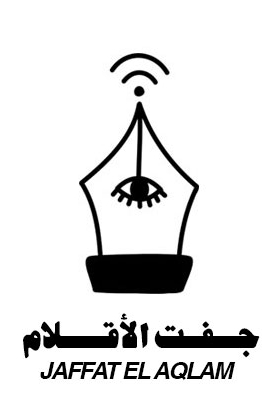“The trauma said don’t write this poem
Nobody wants to hear you cry about the grief inside your bones
My bones said “Tyler Clementi dove into the Hudson River convinced he was entirely alone.”
My bones said “write the poem.” Andrea Gibson
I was halfway through watching Gone Girl
(which by the way is a horrible movie, don’t watch it)
when I noticed the time.
It was a little after 12 which meant
that it’s technically 2015 now.
So even though I wasn’t much for celebrations
I went up to the roof to listen
to the sounds of my hometown
welcoming the new year.
Somehow a feeling that I might not be
here next time around washed over me.
Along with the realisation that this could very will be
the last time I hear a sound of a city collectively coming together
for a common celebration.
Soon after that I couldn’t stop thinking about
how despite the fact that there were 4 other Noura’s before me
my mother still insisted on this name.
She still insisted on Noura
Maybe she sensed something when
she was pregnant with me that made her think
having a little more light in my life would help me somehow.
I don’t know how to tell her that it didn’t
Because 8 years after my diagnosis
I still don’t feel entitled to this depression.
As if it was something that I needed to fulfill
a certain ‘quota’ to even ‘qualify’ for.
But it doesn’t work that way.
It doesn’t work that way.
It does NOT work that way.
Right?
and yeah, okay, my father may never have been around
but I have a mother who knew when to leave a failed marriage
and who worked 6 days a week so my brother and I would
never want for anything
along with a grandfather who showed me what
a good man is without ever needing
to utter a word.
So, really how does it make sense that
there are days where I wake up
with so much heavy inside of me that
I’m surprised at how I can walk around
without leaving earthquakes in my wake.
and others where I wake up with so much
empty I wonder if my body is as hollow
as it feels.
and why do I constantly need to
remind myself about how a tragic
backstory isn’t needed to
validate this depression.
and why can’t I ever talk
about this without feeling
an obligation to sugarcoat it
with metaphors so it becomes
easier to swallow.
Maybe it's because no one wants to
hear about how stability tastes
like chalk.
That the 20 mg’s of abilify had to
be broken to pieces,
how the 40 mg’s of prozac can only
be washed down with orange juice,
that even with the concerta I couldn’t stay
in any university long enough
to get a degree
and how I keep xanax in every
single bag I own.
Listen,
It’s been 8 years
it’s been almost 3 thousand days
it’s been 6 years in 3 different high schools
It’s been 3 different universities
It’s been a job that never panned out
and through it all my brain has never
once stopped treating my body
as if it is a battle ground.
That I can’t help but wonder
if the war I never enlisted to be
a part of will ever end.
That I can’t help but wonder if
I even want it to.
***
text // noura alzuabi
art // reem almutairi











